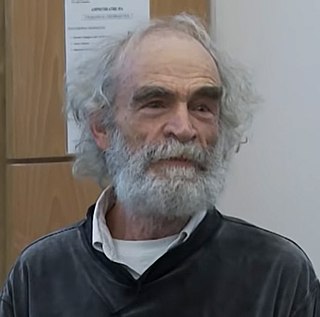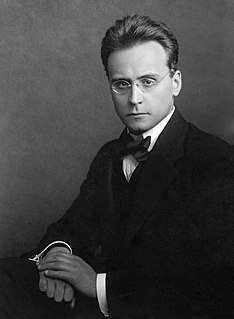A Quote by Ludwig Wittgenstein
People often say that aesthetics is a branch of psychology. The idea is that once we are more advanced-all the mysteries of art-will be understood by psychological experiments. Exceedingly stupid at this idea is, this is roughly it.
Related Quotes
I never went into aesthetics. Aesthetics is what philosophers have to say about art, and a lot of them take an analytics position and raise the question, "What is an art object?" As soon as you fall into that trap, an artist is going to come along and say, "That isn't art - it's something else." That's a hopeless gig.
Faculty Psychology is getting to be respectable again after centuries of hanging around with phrenologists and other dubious types. By faculty psychology I mean, roughly, the view that many fundamentally different kinds of psychological mechanisms must be postulated in order to explain the facts of mental life. Faculty psychology takes seriously the apparent heterogeneity of the mental and is impressed by such prima facie differences as between, say, sensation and perception, volition and cognition, learning and remembering, or language and thought.
We now have a better biological and psychological understanding of our moral thinking. The idea that we should do what maximizes happiness sounds very reasonable, but it often conflicts with our gut reactions. Philosophers have spent the last century or so finding examples where our intuition runs counter to this idea and have taken these as signals that something is wrong with this philosophy. But when you look at the psychology behind those examples, they become less compelling. An alternative is that our gut reactions are not always reliable.
I describe it ( the new aesthetics) 'radically': I say aesthetics = human being. That is a radical formula. I set the idea of aesthetics directly in the context of human existence, and then I have the whole problem in the hand, them I have not a special problem, I have a "holography" (reacting on a former suggestion of the public as a slight joke, fh) I don't know exactly what a holography is.. (1973
[It's] troubling because it reminds us how difficult it is to prove anything. We like to pretend that our experiments define the truth for us. But that's often not the case. Just because an idea is true doesn't mean it can be proved. And just because an idea can be proved doesn't mean it's true. When the experiments are done, we still have to choose what to believe.
I never really understood the idea that nonfiction ought to be this dispensary of data that we have at the moment. Also, roughly around the time we were doing this fact-checking. And I never really understood why people think what nonfiction's job is to give them information as opposed to something else.
This common and unfortunate fact of the lack of adequate presentation of basic ideas and motivations of almost any mathematical theory is probably due to the binary nature of mathematical perception. Either you have no inkling of an idea, or, once you have understood it, the very idea appears so embarrassingly obvious that you feel reluctant to say it aloud.
Yeah, we don't consider many stupid things. I mean, we get rid of 'em fast...Just getting rid of the nonsense -- just figuring out that if people call you and say, 'I've got this great, wonderful idea', you don't spend 10 minutes once you know in the first sentence that it isn't a great, wonderful idea...Don't be polite and go through the whole process.








































